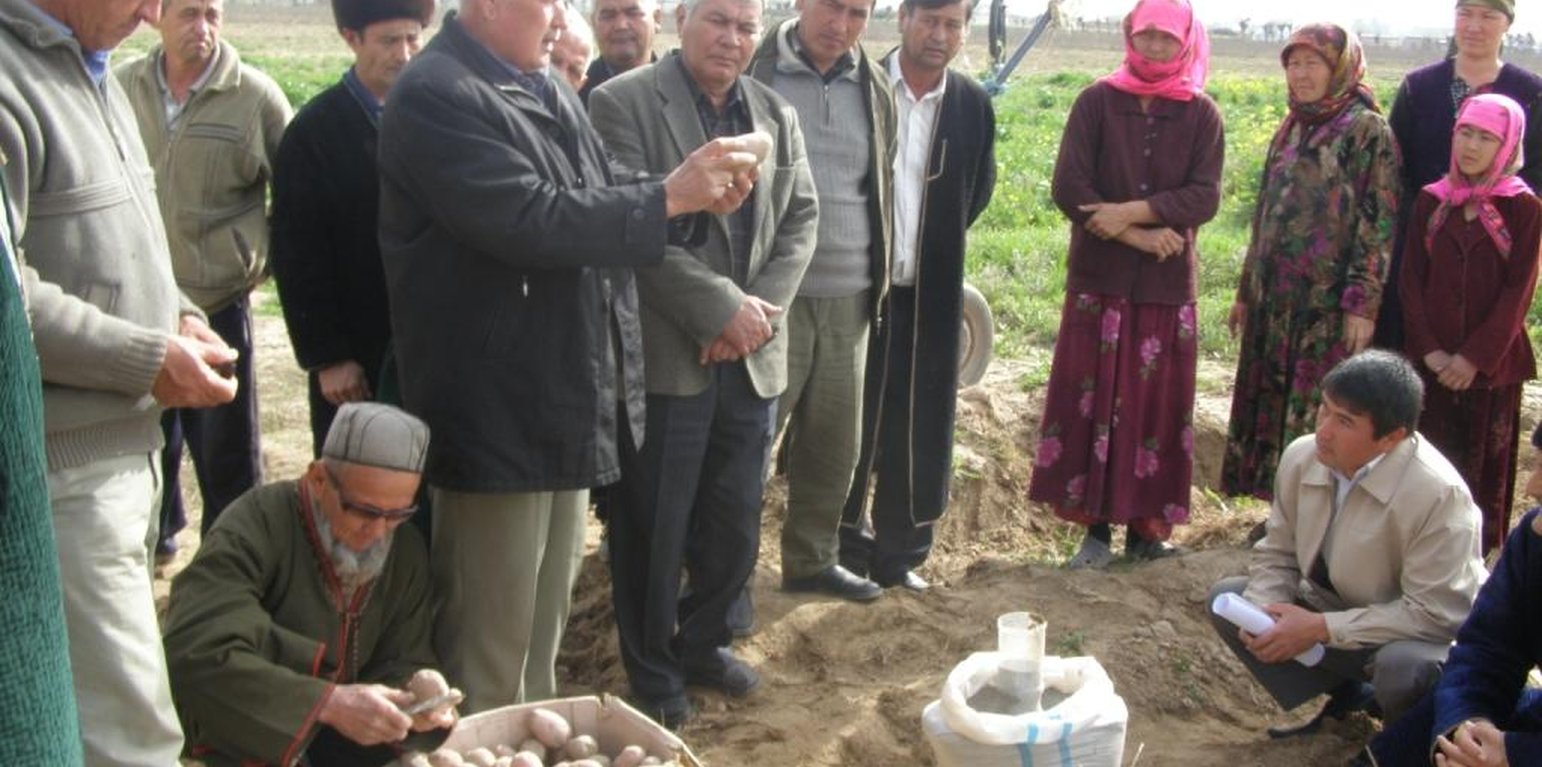



Aims / objectives: Farmer field schools are part of the UNDP-GEF project on “Demonstrating Local Responses to Combating Land Degradation and Improving Sustainable Land Management in SW Tajikistan”. They were established with the aim to address the dissemination of sustainable agricultural technologies, and the introduction of new crops. Currently, many farmers in Tajikistan may not previously have been farmers during Soviet times and therefore may lack detailed agricultural knowledge and experience.
Methods: The FFS training is voluntary and the opportunities to attend are announced at Jamoat level. Each year 4 different groups, each comprising 10 to 20 farmers are formed in 4 different Jamoats. The learning comprises a range of activities from classroom teaching to hands-on field experience. The content of the training sessions are effectively adapted to the relevant season and crops as well as to the pests that may occur. The field school addresses some of the following topics; cultivation of winter wheat, potatoes, tomatoes and melons, adequate post harvest handling, use of trees and shelterbelts, generation of quality seeds, pest management, efficient use of irrigation water, etc. The field from which the FFS participants learn about agriculture in practice is a 0.5 ha plot provided by one of the farmers.
Stages of implementation: Before the start of the FFS, 4 local agronomists from target Jamoats were recruited by UNDP and sent on a study tour to Russia. These agronomists in their capacity as a Local FFS Consultant started running FFSs in each Jamoat. Initially, in conjunction with the National FFS Consultant of the SLM project, the local consultants organised several meetings with local farmers in order to identify their training needs. Taking into account the needs of farmers the curricula was prepared and the training schedule was agreed with the farmers/participants.
Role of stakeholders: The project engaged women who are generally considered landless and vulnerable. They were involved in the demo plots on the basis of agreement signed between a local women’s group and a farmer, who owned the land. According to this agreement 70% of the harvest is distributed among the women, and 30% remains for farmer. In addition, many training sessions on pest management, planting of tomatoes, potatoes etc were delivered to women at the demo plot. To ensure food security at the household level training on canning, preparation of juice and how to make jam were conducted. However, more male than female farmers participated in the FFS. This is linked to the fact that the role of male farmers on Dehkan farms is to take decisions on cropping patterns and instruct other farmers. Therefore better dissemination of knowledge is expected from male farmers participating.
Other important information: The project has been efficient in providing micro-loans through an agreement with the micro-loan organisation “Rushdi Obshoron” for agricultural purposes in all four Jamoats, In total, 100,000USD has been distributed to 4 Jamoats.
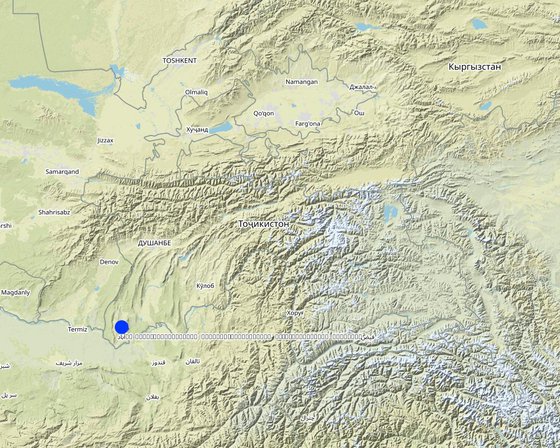
สถานที่: Shaartuz, Khatlon, ทาจิกิสถาน
วันที่ริเริ่ม: 2007
ปีที่สิ้นสุด: 2011
ประเภทของแนวทาง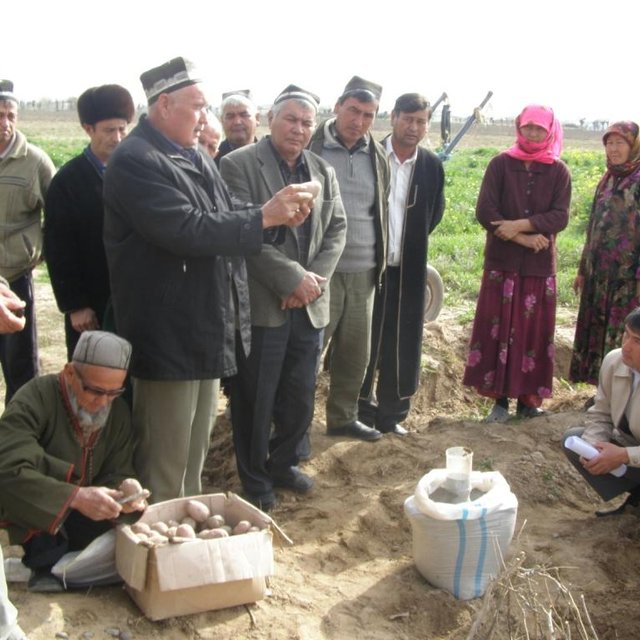
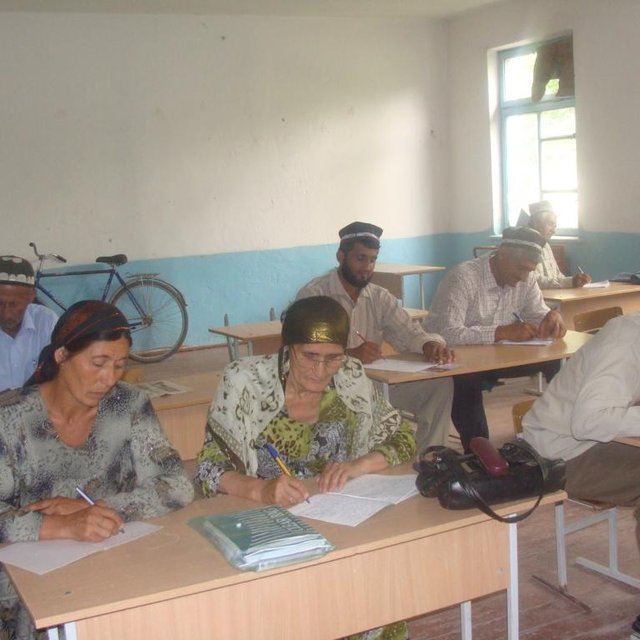
| ผู้มีส่วนได้เสียหรือองค์กรที่นำไปปฏิบัติใช้มีส่วนเกี่ยวข้องกับแนวทางนี้อย่างไร | ระบุผู้มีส่วนได้ส่วนเสีย | อธิบายบทบาทของผู้มีส่วนได้ส่วนเสีย |
| ผู้ใช้ที่ดินระดับท้องถิ่นหรือชุมชนระดับท้องถิ่น | Local agronomists from Jamoat level were sent to Russia on a study trip to learn from Russian experiences with sustainable land management Landless women, individual farmers | Only 1/3 of the participants were women. This is linked to the fact that the role of male farmers on Dehkan farms is to take decisions on cropping patterns and instruct other farmers. Therefore better dissemination of knowledge is expected from male farmers participating. Landless women who are very vulnerable. |
| ผู้เชี่ยวชาญ SLM หรือที่ปรึกษาการเกษตร | International specialists National and local level consultants | |
| องค์กรพัฒนาเอกชน | National agronomists working as consultants for UNDP | |
| องค์การระหว่างประเทศ | UNDP |
Before the start of the FFS 4 local agronomists from target Jamoats were recruited by UNDP and sent on a study tour to Russia. These local FFS consultants then started running a FFS in each Jamoat.
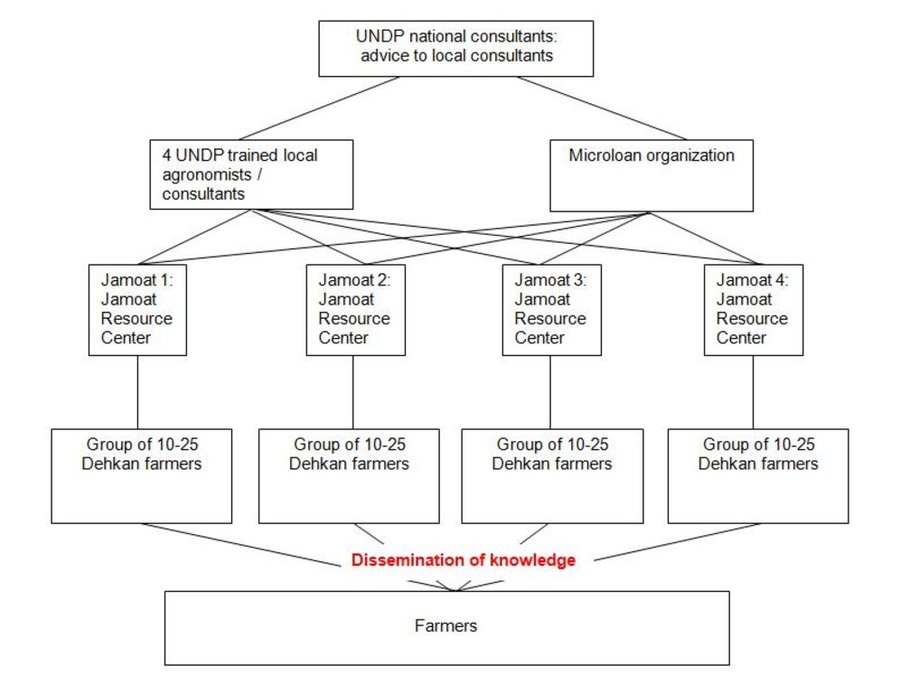
การตัดสินใจถูกทำโดย
การตัดสินใจถูกตัดสินอยู่บนพื้นฐานของ
Sustainable irrigation water use, integrated crop management, tree planting for biodrainage, preventing gully formation, crop storage, effective seed production, pest management
Experiments about intercropping of different crop species. Local consultants also undertook research on marketing of different crops, which crop should be grown, and when for example, in order to achieve the best prices.
Research was carried out on-farm
Salary of consultants
แรงงานของผู้ใช้ที่ดินคือ